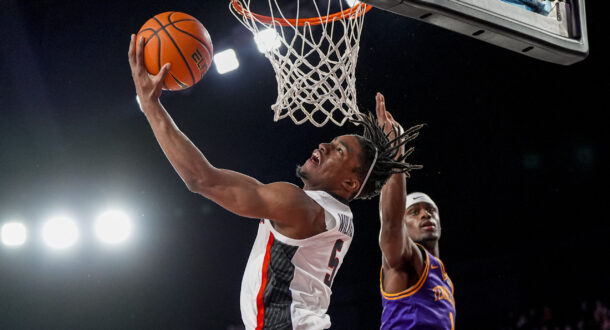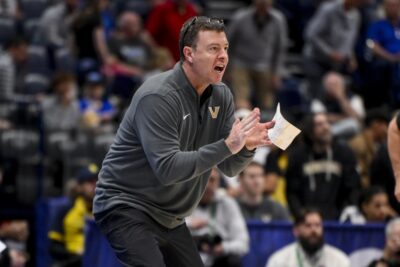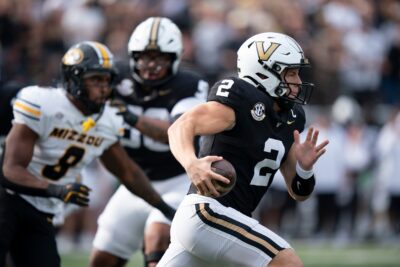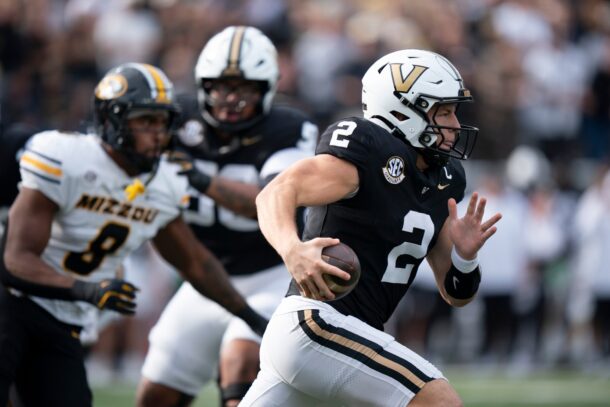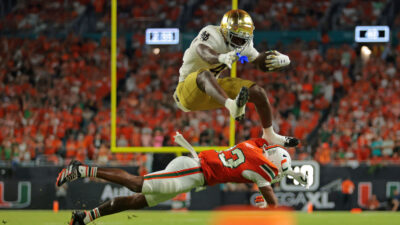
Florida football: Dan Mullen’s offensive genius vs. the nasty defense he helped create. Yes, Saturday night in Starkville should be fun
Florida’s offense, slowly but surely, is showing signs of life under Dan Mullen. Sure, the Gators enter Saturday’s contest at Mississippi State ranked 93rd in total offense, a figure that’s hardly anything to write home about and unlikely to strike fear into the hearts of the Bulldogs.
But dig a little deeper and Florida is making genuine progress.
The Gators rank No. 26 nationally in scoring offense through the season’s first four games, No. 17 in red-zone offensive (.941 percent), No. 27 in turnovers lost (only 4), No. 54 in rushing offense (stop the presses!!), and an impressive No. 29 in yards-per-play at 6.67.
In other words, Florida isn’t running a ton of plays, but when they do, they are gaining positive yards, converting scoring chances and protecting the football. It isn’t the second-coming of the Fun-‘N’-Gun, but it’s a formula that will likely give Florida a chance as it hits the meat of the schedule over the next month.
One area Florida would like to be a little better as they begin to face elite defenses — starting this week with Mississippi State, ranked No. 8 nationally in total defense — is explosiveness.
The Gators rank only 68th nationally in percentage of offensive plays gaining over 20 yards (7.7%) and according to Bill Connelly, the father of S&P+ rankings and the man behind SB Nation’s “Football Study Hall”, Florida ranks 40th nationally in “explosiveness,” a far superior number to last year, when they were ranked 100th in that category.
The Gators aren’t likely to sustain a high number of drives that cover the length of the field playing against an excellent Miss State defense on the road, so they’ll need to be creative in getting the ball to playmakers in space in order to try to hit a few chunk plays.
The good news?
Florida has the personnel to do better.
While the Gators’ offensive line hasn’t performed great this season, there were signs of life against Tennessee, especially in the running game.
Jordan Scarlett ran with power and decisiveness against the Vols, a marked improvement from his early season runs where he waited too long to hit seams and often paid the price.
Facing Miss State will be an immense challenge for Florida’s inconsistent offensive line. The Bulldogs feature one of the nation’s best defensive fronts. led by the versatile Jeffery Simmons and Montez Sweat, the All-American who leads the Bulldogs in sacks and tackles for loss through four games.
Florida will likely double-team Simmons when it can, and use overloads and deceptions to slow Sweat. It sounds nice in theory, but Florida will still need Scarlett, already one of the best in the country in picking up yards after contact, to make simple one-cut runs and get quickly downhill, as he does in the run below, to be successful in the power run game against Miss State.
https://twitter.com/JaredStanger/status/1044058835248242688
Florida should also look to diversify its running attack against the Bulldogs, using motion and getting the flex receiver involved in the run game, an element described by Mullen here and one that featured prominently in the Florida run game under Mullen as offensive coordinator at Florida a decade ago.
https://www.youtube.com/watch?v=EOyNtHL79ag
Fortunately for Florida, they have the personnel to do this.
With Mississippi State likely to key on Freddie Swain and Tyrie Cleveland on the perimeter, this would be an excellent game for Florida to up the touches for Kadarius Toney and Trevon Grimes, who are each electric in space, albeit in different ways.
Toney has 8 touches through three games with 97 yards to show for it, an average of a first-down per touch. Of those 8 touches, 3 have come from the Wildcat, which is fine, though somewhat predictable, given Toney has only lined up in Wildcat on four snaps this season.
Against Miss State, look for Mullen to perhaps revert to a Percy Harvin type classic and start Toney in the slot, making him available as a running back from empty or — less likely — an option on a jet sweep.
The bottom line is that finding creative ways to get Toney the ball is something Florida will need to try to do if they want to generate explosive plays in Starkville.
Trevon Grimes is another Gator with explosive playmaking capabilities, although his are far less likely to come in the run game.
At 6-5, 210, Grimes has prototypical NFL size, which he pairs with elite speed to become both a vertical passing game threat and a fast, physical receiver who is hard to tackle in space. Thus far, Mullen has preferred to get Grimes the ball on the edge and allow the receiver to make a cut or go to work on corners who lack Grimes’ size and physicality.
If Mississippi State has a weakness in the secondary, it’s been giving up explosive plays on the perimeter, where they rank 50th nationally despite a defense in the top 10 in total defense. The talent is there in Cameron Dantzler and Jamal Peters, who are both big, physical corners at 6-2 each. But life has been harder without Tolando Cleveland and J.T. Gray, and if Florida can isolate Grimes on one of the smaller Miss State corners, they may have a good chance for an explosive in either a jump-ball situation downfield or in a flair to the edge situation, where we saw Grimes excel early in the season.
Whatever Florida’s plan, there need to be explosive plays and the Gators need to continue to emphasize consistency in the running game. For all of Mississippi State’s talent up front, they did surrender 229 yards rushing to Kentucky and Benny Snell.
If Florida can hit a few more explosive plays, they’ll force defenses to be a bit less aggressive, which could ease the burden on an inconsistent offensive line and young quarterback. We’ve seen this season what Florida’s path to success is: establish the run and simplify things for Feleipe Franks, who isn’t quite ready to have a game thrust upon his shoulders.
Saturday night in Starkville and next week against LSU, it will be up to Florida’s litany of playmakers to make that possible.
Neil Blackmon covers SEC football and basketball for SaturdayDownSouth.com. An attorney, he is also a member of the Football and Basketball Writers Associations of America. He also coaches basketball.



